

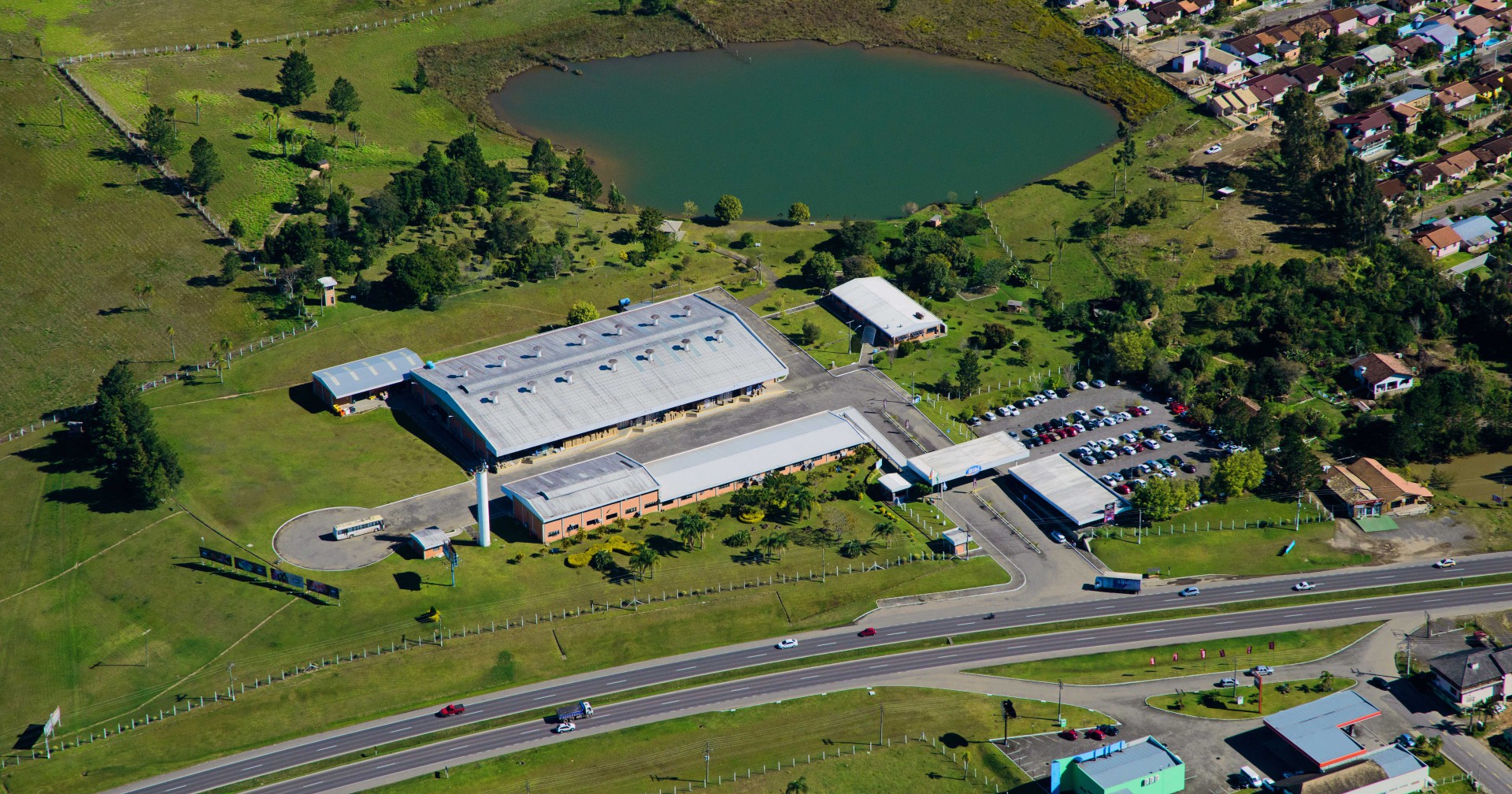
2025-07-23 | By Brazilian Footwear
Sustainability, franchising, and succession are areas in which Calçados Bibi has taken the lead within the Brazilian footwear industry. The company continues to pursue its plan to paint Brazil—and the world—orange, the signature color of the family-owned business founded in 1949 in Parobé, in the state of Rio Grande do Sul. A traditional name in the industry, the company is also considered a benchmark in business succession.
Six years ago, Andrea Kohlrausch, a third-generation member of the founding family, took over the presidency from her father, businessman Marlin Kohlrausch. A prominent female leader, Andrea shares in this interview her views on the company, the challenges of the market, the expansion plan, and Bibi’s growing role in the industry.
Brazilian Footwear: Tell us a bit about your professional background and the origins of the company.
Andrea Kohlrausch: Bibi is the first children's footwear manufacturer in Brazil, founded in 1949 by my maternal grandfather. I’m part of the company’s third generation, and my father became a key leader when he joined the factory in the late 1980s, supporting my grandfather during a major crisis the company was facing. I joined the business in the late 1990s, when I was about 18 years old, because I shared many of the company’s values. I began contributing through intrapreneurial efforts, working across different departments—commercial, administrative, human resources—and later had the opportunity to help structure the international operations.
Brazilian Footwear: Did your professional journey begin at Bibi?
Andrea: Yes, you could say I started at Bibi. As a teenager, I got involved in a few initiatives, like the city council for children and adolescents. After finishing high school, I was eager to work, and whenever I had a free afternoon, I’d call Bibi and ask if there was anything I could help with. I ended up assisting with data entry and labeling tasks. After a student exchange program, I officially joined Bibi as an office assistant—standing in bank lines and doing that type of work. I moved through different departments, and soon an opportunity came up to help structure the export area. The company had been selling footwear to other countries since the 1970s, but in the early 1990s, we made the decision to focus exclusively on our own brand and design. I joined the department under this model, and little by little, we transitioned from working with agents and distributors to internalizing our commercial operations abroad. We even managed to expand the company’s presence to all continents, reaching over 60 countries. Later, I also led other commercial departments and had the opportunity to structure the retail franchising project—making us pioneers in that area as well, as the first children's footwear manufacturer to bring this model to the Brazilian market.
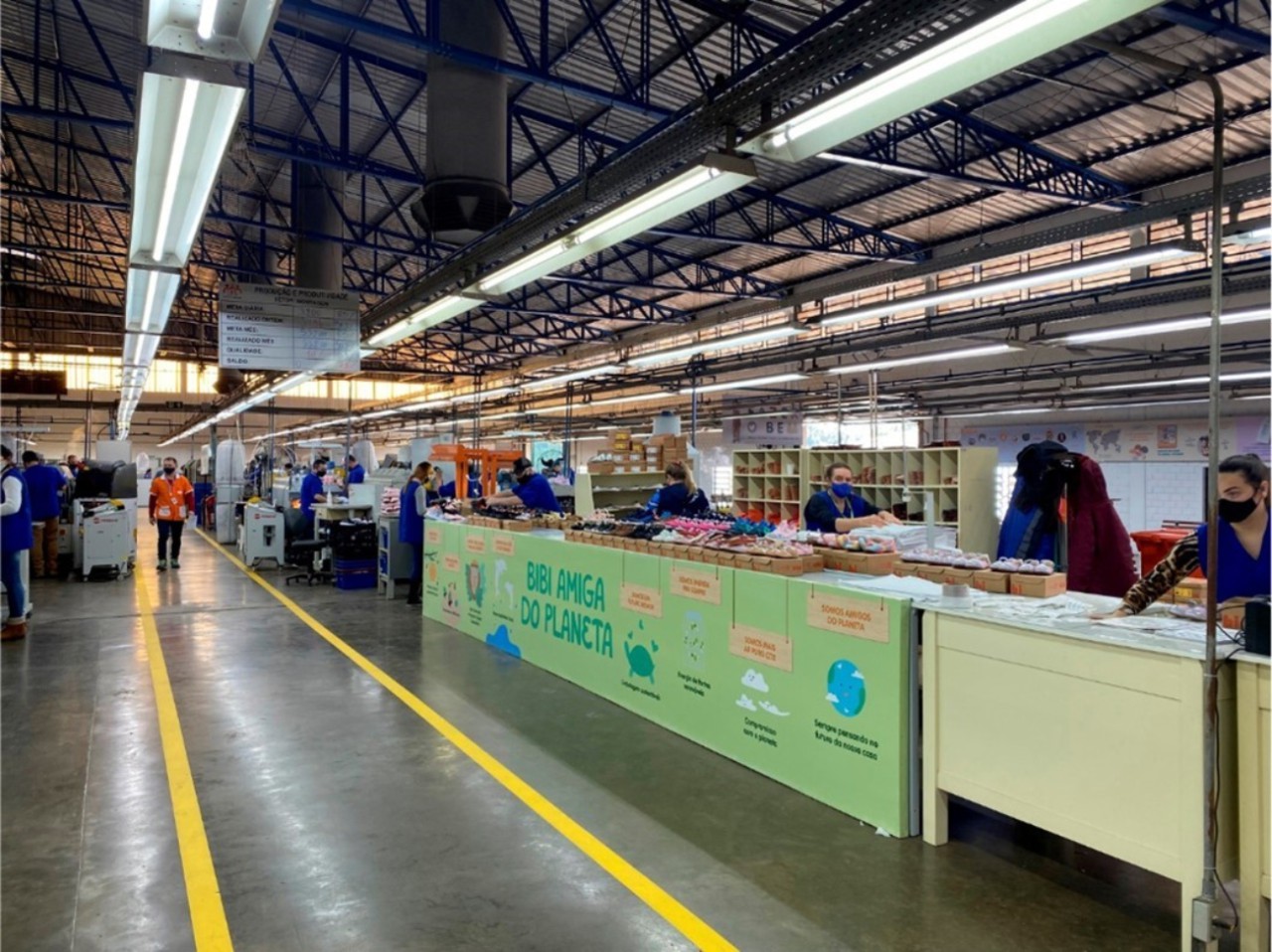
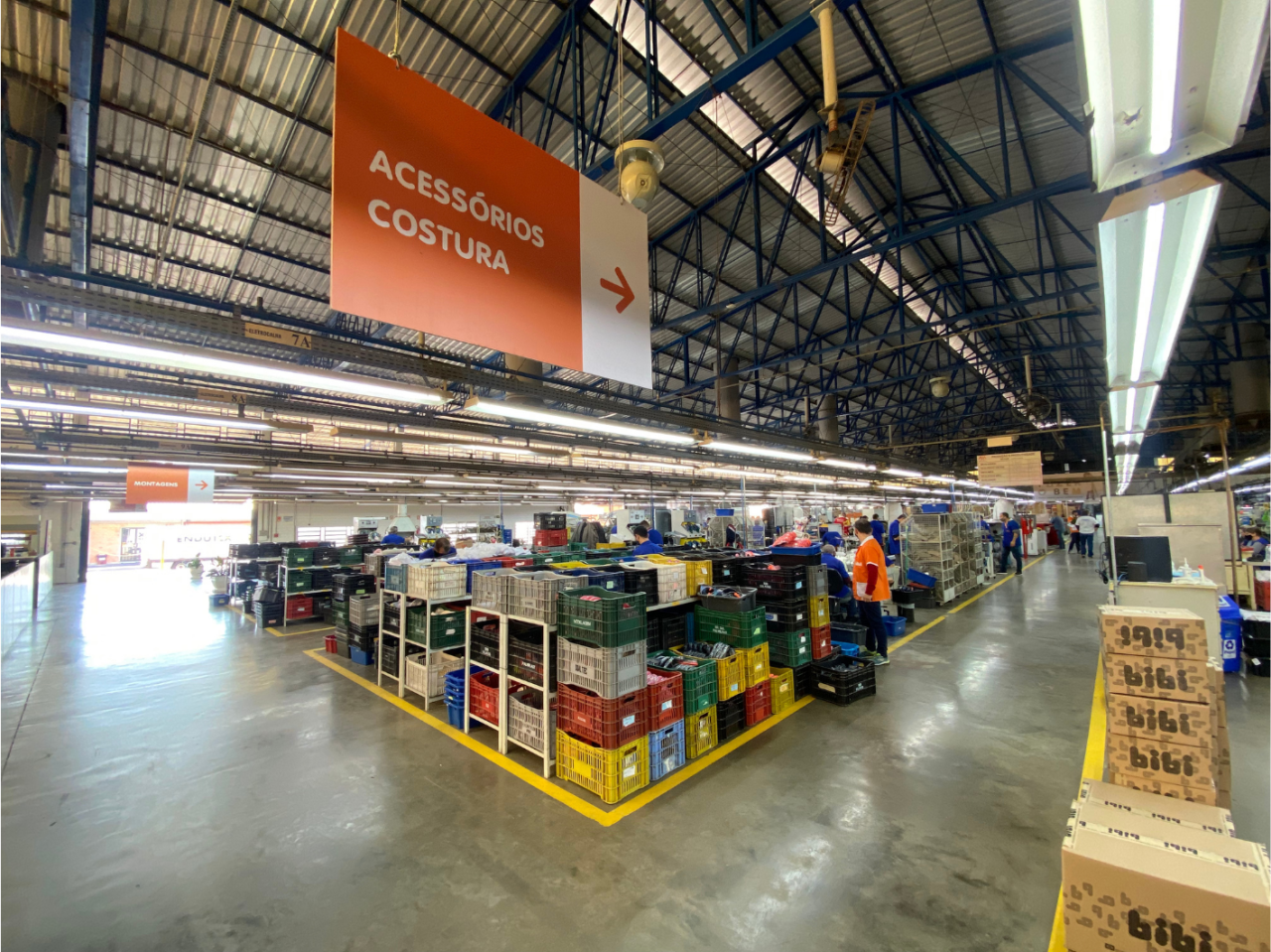
Brazilian Footwear: And when did you become president of the company? How do you evaluate this period so far?
Andrea: I became president in April 2019. I had already experienced a lot of the market firsthand, and I’d say the defining characteristic of this period has been the market’s dynamism. We’ve witnessed a world of major transformations—especially in consumer behavior, which shifted significantly toward digital during the pandemic. Bibi was able to anticipate some of those changes thanks to decisions we made back in 2016 and 2017, when I was still leading the retail operations. At that time, we started laying the groundwork for platforms and data integration, especially for our store network. That preparation was crucial during the pandemic and has been essential to the positive results we’ve seen since then.
Brazilian Footwear: Six years of a fast-changing market, and you’ve also played an important role as a female leader. Could you tell us a bit about that?
Andrea: I always say I’m very grateful to have been born into a family where both my father and mother encouraged us a lot—especially when it came to sports and education. They always told me and my sisters that we could choose whatever path we wanted. We never heard at home that we couldn’t do something because we were women. We weren’t raised with limitations, taboos, or prejudice in that sense. I worked extensively in international markets, and we also need to respect different cultures. I’ve been to several countries and we know that some places are a bit more challenging for women—but cultural differences must be respected. In business, it doesn’t matter whether you’re a woman or a man. At Bibi, we have many women on our team and a strong presence of female leadership. That happens naturally because we offer a truly open space within the company for those who want to make things happen.
“In business, it doesn’t matter whether you’re a woman or a man. At Bibi, we have many women on our team and a strong presence of female leadership. That happens naturally because we offer a truly open space within the company for those who want to make things happen.”
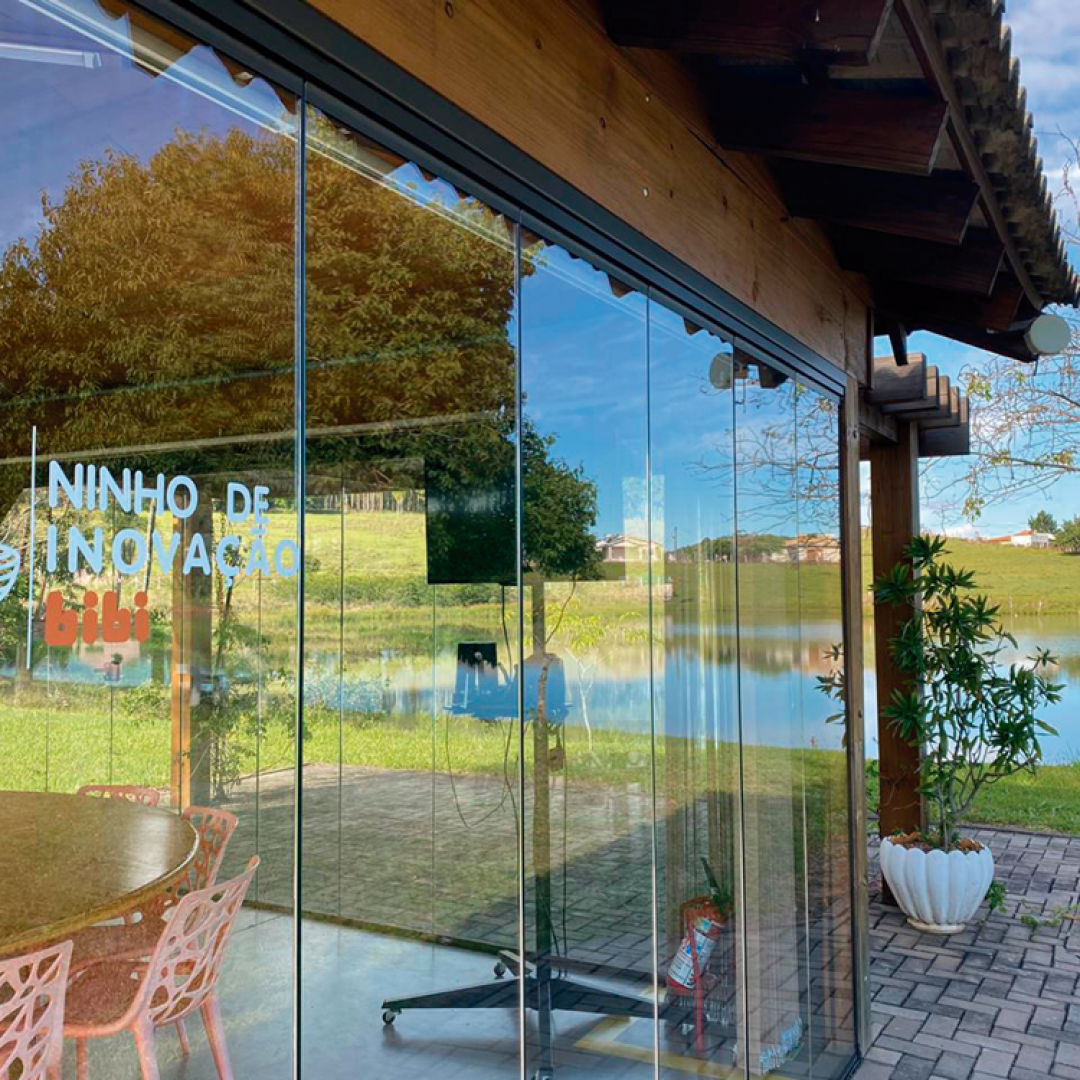
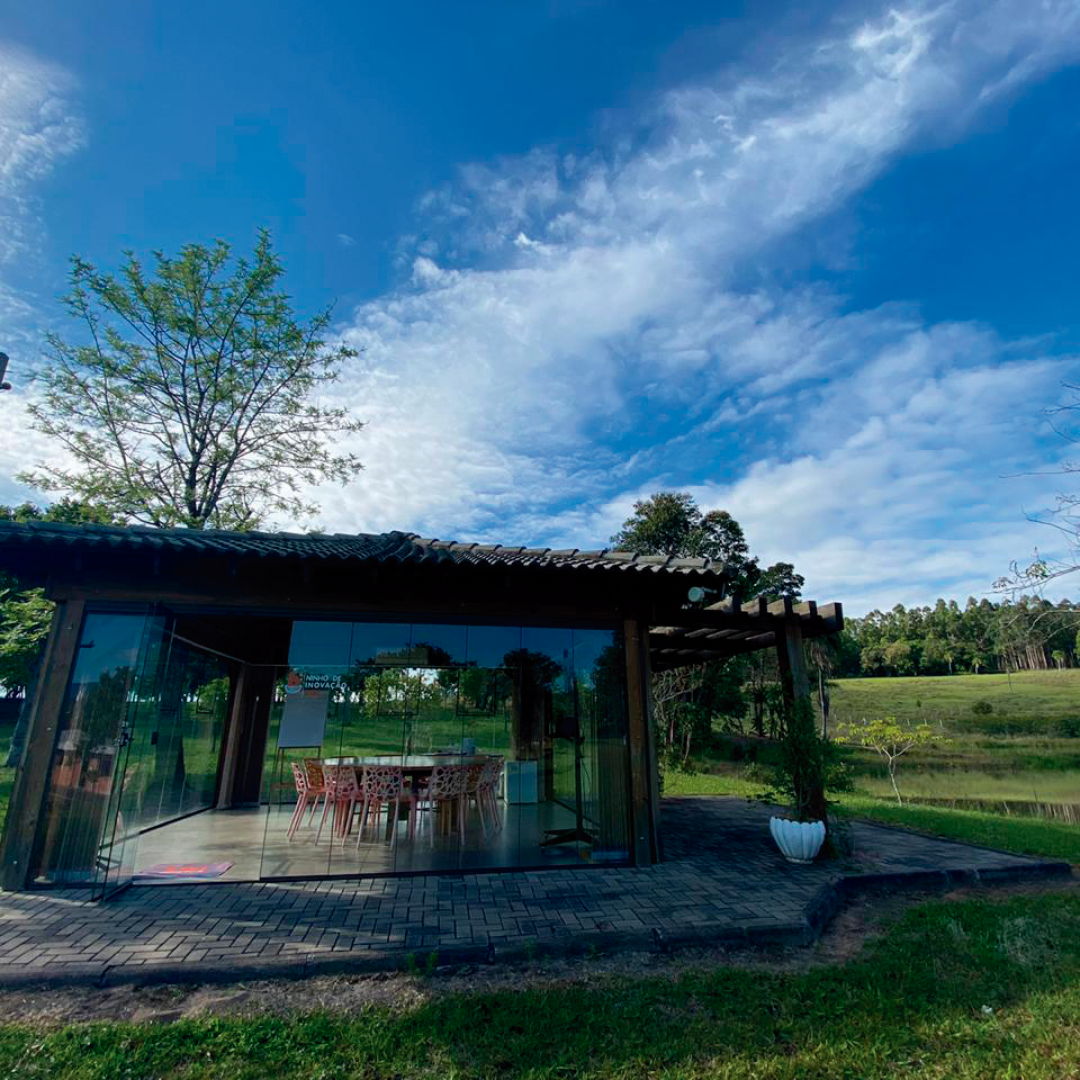
Brazilian Footwear: You’re part of the third generation at Calçados Bibi, and your succession story is often shared. Could you tell us a bit about that process and how you approach this topic internally?
Andrea: In our case, my father was also very wise and announced that, when Bibi turned 70, he would like to step down from the presidency and remain on the board. So, we brought in an external consultancy to support us. Bibi had had a shareholders’ agreement in place for a long time, but about 12 years ago, we began to better structure the pillars of governance. Today, we have two independent board members who support the board. We also have a family council and the shareholders’ agreement. In a family-owned business, governance is especially important when it comes to longevity. Today, we also see ourselves as a school of entrepreneurship, since 17 years ago we launched a store network. We have several entrepreneurs investing in our brand and in our business model. And for these small businesses, governance starts with something as basic as not mixing personal and business finances. When I became president, the decision to appoint me came from the Advisory Board. We’ve been practicing governance and are always evolving. The fourth generation already exists—they’re still children and teenagers—and this is a topic for the Family Council to discuss. All of this helps protect management, keeping it professional and aligned with strategic planning, while also protecting the family. It’s governance for the business that supports overall sustainability.
Brazilian Footwear: Now we’d like you to share some company figures. How many employees, production units, etc.?
Andrea: The company turned 76 on April 25. Our ecosystem includes 1,150 people directly employed in the industrial operation, which consists of one unit in Bahia and another in Rio Grande do Sul. We also have a retail network with more than 150 stores across Brazil and in five Latin American countries. Our factories are vertically integrated—soles and insoles are manufactured in-house. We produce over 2.6 million pairs and components per year. In the retail network, we employ more than 800 people. Altogether, we have over 2,000 employees. Bibi is also present in the multibrand retail channel, with more than 3,500 points of sale in Brazil and around 1,500 abroad.
Brazilian Footwear: Speaking of the international market, in how many countries is Bibi present?
Andrea: We have relationships with more than 60 countries and currently export around 15% of our production. Most of that volume is concentrated in Latin America, where we are carrying out an expansion project. Today, we have 23 stores in five countries, and our goal is to reach 100 stores by 2033. In addition, we’re about to open a store in Angola and are working on a strategic plan in the United States, aiming to develop more direct brand initiatives.
Brazilian Footwear: Has the company been making ongoing investments?
Andrea: Yes. In addition to those, we began 2025 by completing a modernization project for our sole manufacturing facility and injection molding machines. Over the past three years, we’ve been investing in this area, replacing some machines and equipment to make new technologies available. In this final phase alone, nearly R$ 5 million were invested. This past March, we also inaugurated BibiLand here in Parobé/RS. The store we have in front of the factory had been undergoing renovations, and now families and children are invited to step into a giant shoebox—Bibi’s shoebox—featuring a fun, experience-driven space.
“We began 2025 by completing a modernization project for our sole manufacturing facility and injection molding machines. Over the past three years, we’ve invested in this area by replacing some machines and equipment to bring in new technologies. In this final phase alone, nearly R$ 5 million were invested.”
Brazilian Footwear: What are the projections for 2025?
Andrea: In 2025, we’ll continue pursuing growth by executing our expansion plan. We’re projecting a 17% increase in the group’s annual revenue. We know how important it is to focus on innovation and product development, because the market is challenging. Consumption is there—but it’s driven by novelty. And that’s a constant challenge for fashion brands.
Brazilian Footwear: Bibi has strong social roots. How important is this pillar for the company?
Andrea: Sustainability is part of Bibi’s culture—it’s one of our core values. And a value is not just something we believe in, but something we put into practice. We have initiatives in several areas: environmental, social, cultural, and economic. We were also pioneers in embracing Sustainable Origin, becoming the first company certified by the program, which is the only ESG and sustainability initiative in the world focused on the footwear production chain. We’ve advanced through different certification levels and have now been recertified at the Diamond level three times. This year, we’ll undergo another recertification to maintain that level. The program continues to evolve, bringing new indicators, and within Bibi, we’ve been working with 12 commitments as part of what we call our sustentaBIBIlity. In the environmental area, a major focus is waste generation—seeking proper disposal, recycling, and co-processing solutions. Since we work in fashion, there’s always something new being introduced, and we need to find responsible solutions for it. One example was the evolution of our Fisioflex insole two years ago, when we found a way to co-process the waste and turn it into new insoles. It’s a continuous effort, and this is a strong and ongoing front for us. On the social side, we have numerous initiatives—from employee development to volunteer programs we organize and the Fábrica de Talentos (Talent Factory) training program. Through this program, we train 55 to 60 young people every year, in both Bahia and Rio Grande do Sul, using the Senai methodology. This is just one of several programs we’ve developed. We also dedicate the production of one day each year to donations. In our store network, we run the Passinhos do Bem (Little Steps of Good) campaign, where customers can purchase a small keychain, and part of the proceeds go to the NGO Amigos do Bem. It’s a way to engage our entire retail network with our purpose of doing good—one little step at a time. We also offer career exploration opportunities to young people through EducaBibi, and we have a variety of other actions along these lines.
“Sustainability is part of Bibi’s culture—it’s a core value for us. And a value is not just something we believe in, but something we put into practice. We have initiatives across multiple areas, including environmental, social, cultural, and economic. We were also pioneers in embracing Sustainable Origin, becoming the first company certified by the program, which is the only ESG and sustainability initiative in the world focused on the footwear production chain.”
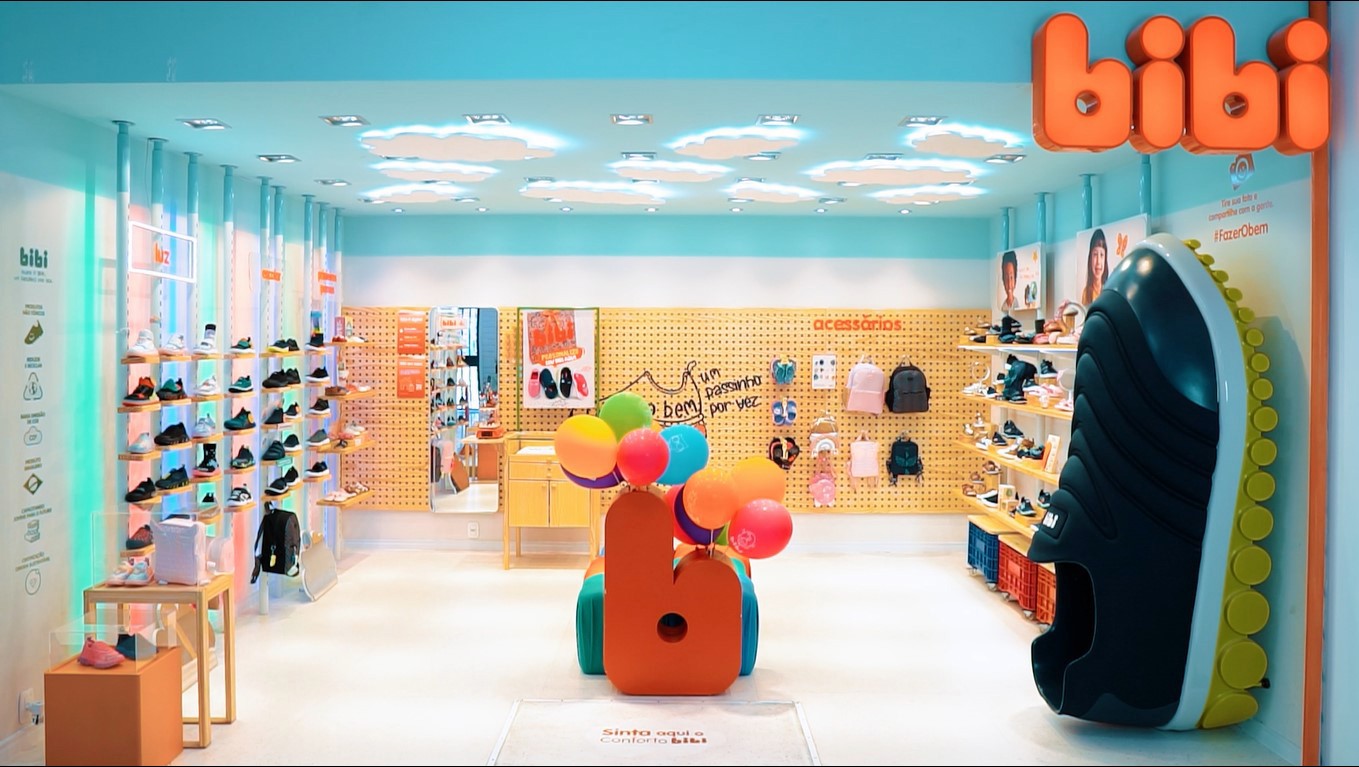
Brazilian Footwear: Bibi has also participated in BFSHOW since its very first edition. What does this event represent for the company?
Andrea: BFSHOW has become the main and most important trade show in the footwear sector—both nationally and internationally. All the progress and strategic moves that have been made, including now taking the event to São Paulo, have proven to be very effective. The fair is now on a path to consolidation, and with BFSHOW, we already have a meeting point that attracts both domestic and international clients to Brazil. It is, without a doubt, a success—and it’s only going to keep growing..
Brazilian Footwear: Finally, if you could summarize the importance of social initiatives for Bibi in one word, what would it be?
Andrea: Our social initiatives can be summed up by our purpose: doing good to create lasting memories. This purpose was revisited recently and reinforces our vision and culture of building win-win relationships with everyone we interact with. And that’s what sustainability is all about. We seek balance in our relationships, and we need all stakeholders to benefit as well. We’re a 76-year-old company, and we’re doing things with future generations in mind. So, doing good to create lasting memories is also key to ensuring that we have businesses, companies, and markets for the generations to come.
Promote your brand
Contact us to find out how to promote your Brazilian footwear brand on the platform.